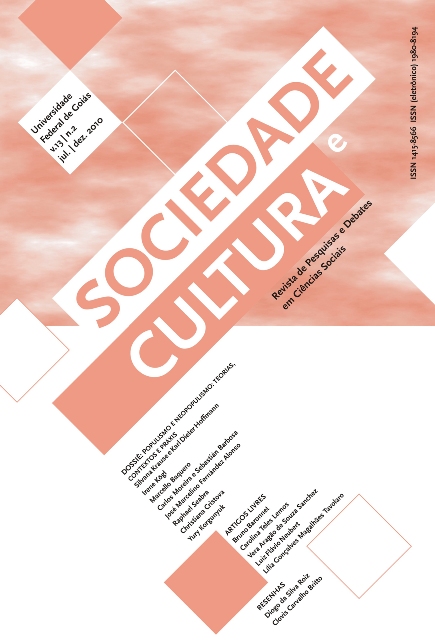Populism: the Bulgarian case
DOI:
https://doi.org/10.5216/sec.v13i2.13426Palavras-chave:
populism, Bulgaria, National Movement Simeon the Second, GERB, postcommunismResumo
The paper explores various aspects of populism focusing on the Bulgarian case study since 1989 with reference to its empirical manifestations, the legitimacy crisis and political culture traits. The text focuses on parliamentary represented parties and reconstructs the evolution of populism from an ephemeral phenomenon to an integral part of the political system. Particular attention is being paid to the year 2001, when the king’s return unleashed the “populist moment” opening up the space for the massive influx of populist parties. The paper advocates the thesis that, with the exception of Ataka, populist parties generally remain within the limits set by constitutional democracy, yet at the same time, by reducing complexity to trivialized solutions they only aggravate the legitimacy crisis instead of overcoming it.Downloads
Não há dados estatísticos.
Downloads
Publicado
2011-03-02
Como Citar
CRISTOVA, Christiana. Populism: the Bulgarian case. Sociedade e Cultura, Goiânia, v. 13, n. 2, p. 221–232, 2011. DOI: 10.5216/sec.v13i2.13426. Disponível em: https://revistas.ufg.br/fcs/article/view/13426. Acesso em: 11 fev. 2026.
Edição
Seção
Dossiê
Licença
Autores/as que publicam nesta revista concordam com os seguintes termos:
- Autores/as mantêm os direitos autorais e concedem à revista o direito de primeira publicação, sendo o trabalho simultaneamente licenciado sob a Creative Commons Attribution License, o que permite o compartilhamento do trabalho com reconhecimento de autoria e da publicação inicial nesta revista.
- Autores/as têm autorização para assumir contratos adicionais separadamente, para distribuição não exclusiva da versão do trabalho publicada nesta revista (ex.: publicar em repositório institucional ou como capítulo de livro), com reconhecimento de autoria e da publicação inicial nesta revista.
- Autores/as têm permissão e são estimulados/as a publicar e a distribuir seu trabalho online (ex.: em repositórios institucionais ou na sua página pessoal) a qualquer ponto antes ou durante o processo editorial, já que isso pode gerar alterações produtivas, bem como aumentar o impacto e a citação do trabalho publicado (veja O Efeito do Acesso Livre).


 Esta revista está licenciada sob a licença
Esta revista está licenciada sob a licença 
